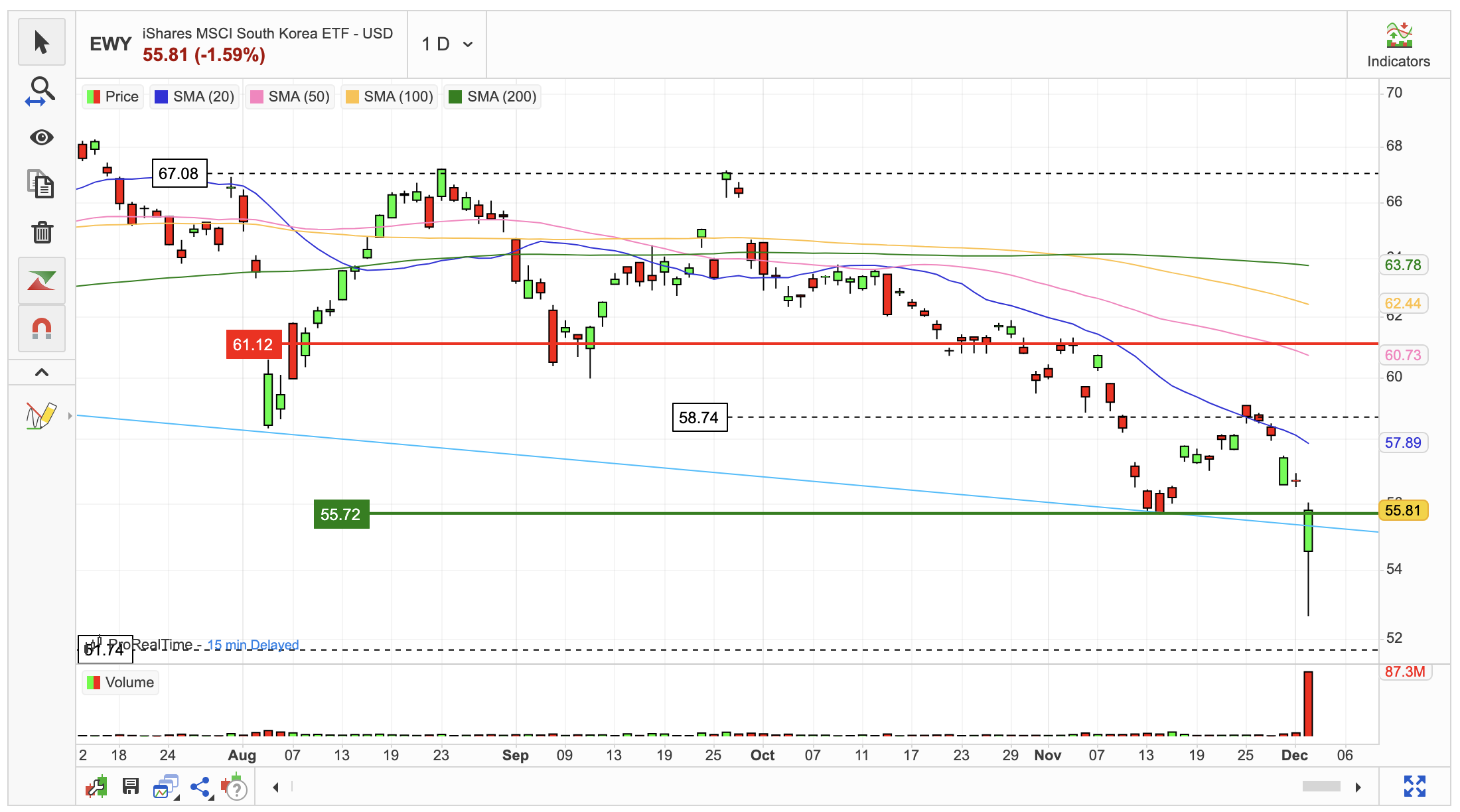South Korea’s Martial Law Chaos Rattles Markets
- This topic has 1 reply, 1 voice, and was last updated 11 months ago by .
-
Topic
-
South Korea’s abrupt declaration of martial law, followed by an equally sudden reversal, sent shockwaves across global financial markets, causing widespread volatility.
The unexpected move led to sharp declines in the KOSPI index, with stocks of major South Korean firms, including Coupang, Samsung, and Posco, suffering steep losses.
The political turmoil has cast a shadow over South Korea’s economic stability, leaving investors on edge as they monitor key industries for further disruptions.
Impact On Stock Markets
The KOSPI, South Korea’s benchmark index, experienced a significant sell-off as investor confidence was shaken by the abrupt political upheaval. High-profile companies that form the backbone of South Korea’s economy bore the brunt of the market turbulence:
- Samsung Electronics, a global technology leader, saw its stock dip sharply amid concerns over how political instability could disrupt its operations and exports.
- Coupang, a major e-commerce player, also faced steep losses, as investors weighed the potential impact of consumer uncertainty.
- Posco Holdings, a key player in steel and materials production, experienced a decline, highlighting concerns about industrial slowdowns during periods of political unrest.
The iShares MSCI South Korea ETF, which tracks the country’s equity market, plunged 7.1% in US trading. This marked its steepest single-day decline since August 5, reflecting the extent of international investor unease.
Currency Market Fallout
The Korean won became the worst-performing currency among 31 tracked globally during the session. It weakened by 2.9%, sliding to 1,444.65 per dollar amid thin New York trading conditions.
The sharp decline in the won added pressure to South Korea’s already fragile economic outlook, with currency traders reacting to fears of capital outflows and reduced investor appetite for South Korean assets.
Broader Implications
Political instability in South Korea could have far-reaching consequences for its economy, which is heavily reliant on exports of semiconductors, automobiles, and steel.
Prolonged uncertainty might disrupt supply chains and dampen global trade partnerships, particularly with key trading partners like the United States and China.
Investor Outlook
The rapid reversal of martial law has somewhat tempered immediate fears, but the underlying political tensions remain unresolved.
Investors are now bracing for further volatility, with a keen focus on how South Korea’s government manages the situation moving forward.
Key economic indicators, corporate earnings reports, and geopolitical developments will likely play a pivotal role in shaping the market’s trajectory in the coming weeks.
For now, South Korea’s financial markets and currency remain under intense scrutiny, as global investors assess the risks and opportunities in one of Asia’s most dynamic economies.

Data: eToro, MarketScreener